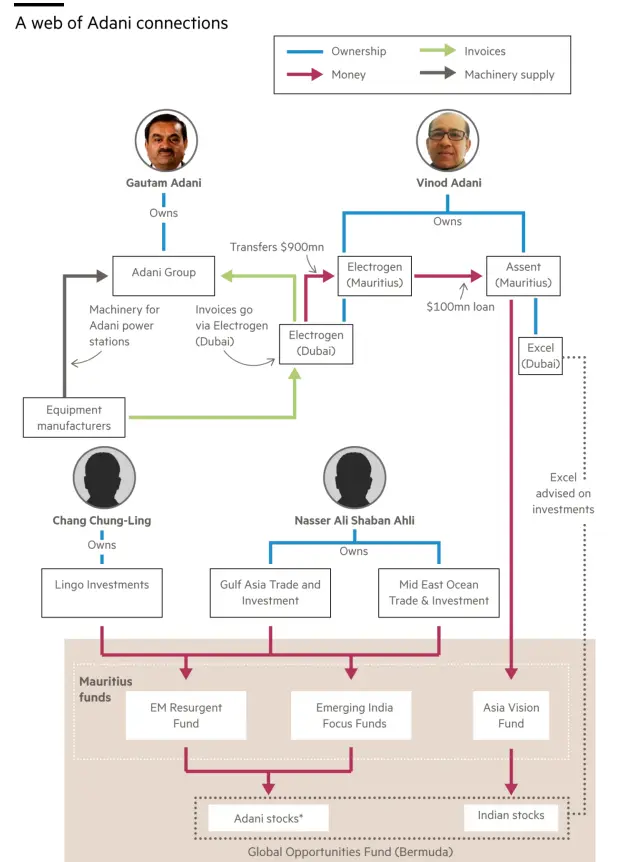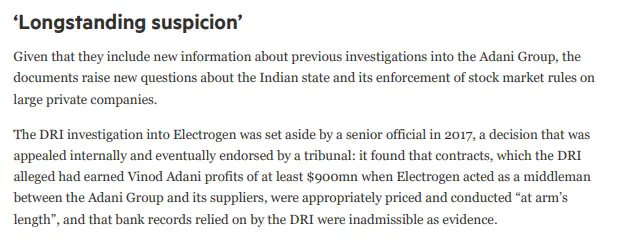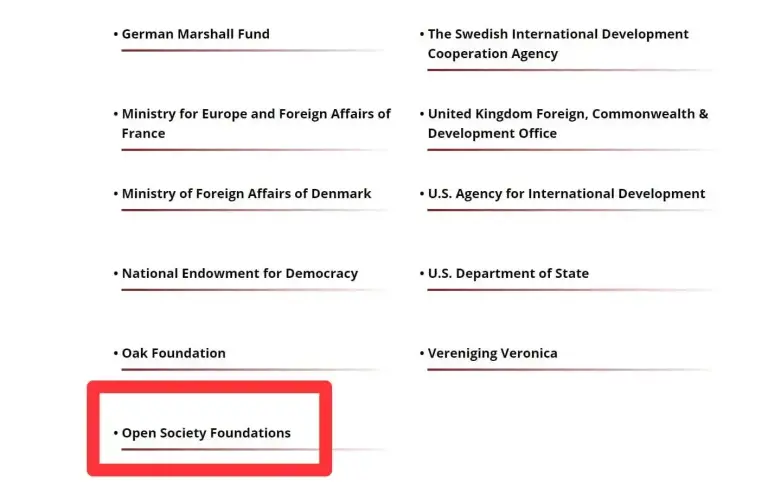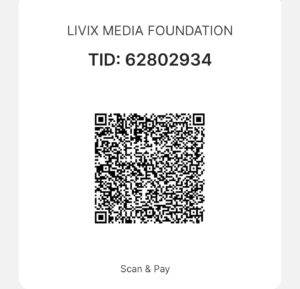Ever since Indian industrialist Gautam Adani made significant waves in the wealth rankings, Western media outlets have initiated a series of attacks, incorrectly alleging financial improprieties on his part. Initially, these allegations came from Hindenburg, followed by the Washington Post, and now the Financial Times has also entered the arena, leveling similar accusations. The claims made by the Financial Times align with the broader narrative seen in Western media. Furthermore, the Financial Times has accused the Adani Group of routing transactions through two individuals, Naseer Ali Shaban Ahli and Chang Chung-Ling. Similar to other reports, the Financial Times also implies that the Narendra Modi government has provided Adani with benefits through various business dealings.
In an extensive exhausting paper, the Financial Times has asserted that the Adani Group utilizes the aforementioned individuals for the purpose of manipulating prices within the Indian stock market. Furthermore, the report posits that the Adani Group follows a complex money trail, spanning from India to Dubai, then to Mauritius, onward to Bermuda, returning to Mauritius once more, and ultimately back to India. Alongside this revelation, the Financial Times has unveiled an intricate web of Adani connections through which funds are routed, ostensibly in an effort to influence and manipulate the stock market.


Moreover, The Financial Times employed publicly accessible news as a covert instrument in its attempt to challenge the Adani Group’s credibility. The FT placed particular emphasis on a Securities and Exchange Board of India (SEBI) case from a decade ago to shed light on the intricate narrative it presented. In its report, the FT detailed, ‘In August 2013, when SEBI initiated an inquiry to ascertain the beneficial owners of the two funds engaged in substantial purchases of Adani stocks, documents indicate that 360 One conveyed that the ultimate investor was the Global Opportunities Fund, domiciled in Bermuda, and characterized as a diversified fund encompassing 195 individual investors.’
Later in the article, The Financial Times delved into the controversy surrounding the Directorate of Revenue Intelligence (DRI) investigation concerning Electrogen. The FT reported that in 2017, ‘A senior official chose to dismiss the DRI’s inquiry into Electrogen, a decision that underwent internal appeals and was ultimately upheld by a tribunal. This tribunal concluded that the contracts, which the DRI had claimed resulted in profits of at least $900 million for Vinod Adani when Electrogen served as an intermediary between the Adani Group and its suppliers, had been appropriately priced and conducted with proper separation. Additionally, it declared that the bank records upon which the DRI had relied were inadmissible as evidence.’

John Reed, South Asia Bureau Chief of FT tweeted, “ Secret paper trail reveals hidden Adani investors: our investigation based on documents shared with the FT by the OCCRP.”
Nevertheless, as has been the case in previous instances, the Adani Group promptly delivered a comprehensive response, providing all the essential facts required to effectively refute the allegations put forth by the Financial Times. Let us delve deeper into the matter to unveil the weaknesses in the Financial Times’ accusations.
Also Read: ANTI-INDIA LOBBY’S SINISTER PLAN TO ATTACK ADANI GROUP EXPOSED
Fact Check
To initiate the fact-checking process, we commence by presenting the official response from the Adani Group in relation to the allegations raised by The Financial Times. The Adani Group chose to confront these accusations head-on, dismissing them unequivocally. Furthermore, the Adani Group directly accused the OCCRP group of being funded and supported by George Soros, asserting that it served as the driving force behind this report with motivations that raised questions. Additionally, the Adani Group emphatically refuted each and every allegation levied by The Financial Times.
Adani group wrote, “ Continuing their relentless campaign, the next attack is being fronted by Dan McCrum of the Financial Times, who jointly with the OCCRP put out a false narrative against the Adani Group on 31 August 2023. The OCCRP is funded by George Soros, who has openly declared his hostility against the Adani Group.”

Furthermore, on the DRI investigation, the Adani group wrote, “The FT’s brazen agenda is exposed by the fact that they have singled out the Adani Group, while the DRI’s Circular, the raison d’être for the whole story, mentions as many as 40 importers including the Adani Group companies. This list not only includes some of India’s major private power generators like Reliance Infra, JSW Steels and Essar but also the state power generating companies of Karnataka, Gujarat, Haryana, Tamil Nadu, etc. and the NTPC and MSTC.”

The Adani Group has rightfully unveiled the intricate web of deceit spun by OCCRP, subsequently published by the Financial Times. Prior to this, Only Fact had exposed this web of deception triggered by George Soros. However, we will provide you with a concise overview of how OCCRP, backed by Soros, operates as an instrument for targeted smear campaigns. According to official documents of OCCRP, the organization receives funding from various sources including the US Government, The Ford Foundation, The Rockefeller Brothers Fund, Open Society Foundations (George Soros), and numerous other foreign entities.


The image provided above serves as a clear illustration of the extensive association between George Soros and OCCRP. Furthermore, the tweet from the Financial Times Bureau Chief, wherein he openly acknowledged that the FT article relied on documents provided by OCCRP, strongly implies that an organization funded by George Soros furnished fabricated documents to initiate an assault on Adani and Prime Minister Modi.

In addition to the resolute stance taken by the Adani Group in countering unfounded allegations, several media outlets, including Business World, Live Mint, Equity Bulls, and The Print, have echoed the group’s rebuttals.
The Adani Group’s response has been unequivocal, emphasizing that they’ve reached a point of exasperation, as the barrage of accusations directed at the Indian industrialist by Western media, including The Financial Times, has already been dismissed by various Indian courts. The Adani Group aptly underscores the lack of substance in these allegations, characterizing them as a concocted assault orchestrated by George Soros’s organization.
| Claim | Financial Times accused the Adani group of share price manipulation |
| Claimed by | Financial Times |
| Fact Check | Misleading |
Also Read: The Washington Post Article Debunked: Crackdown on Shady NGOs has nothing to Do with Adani








